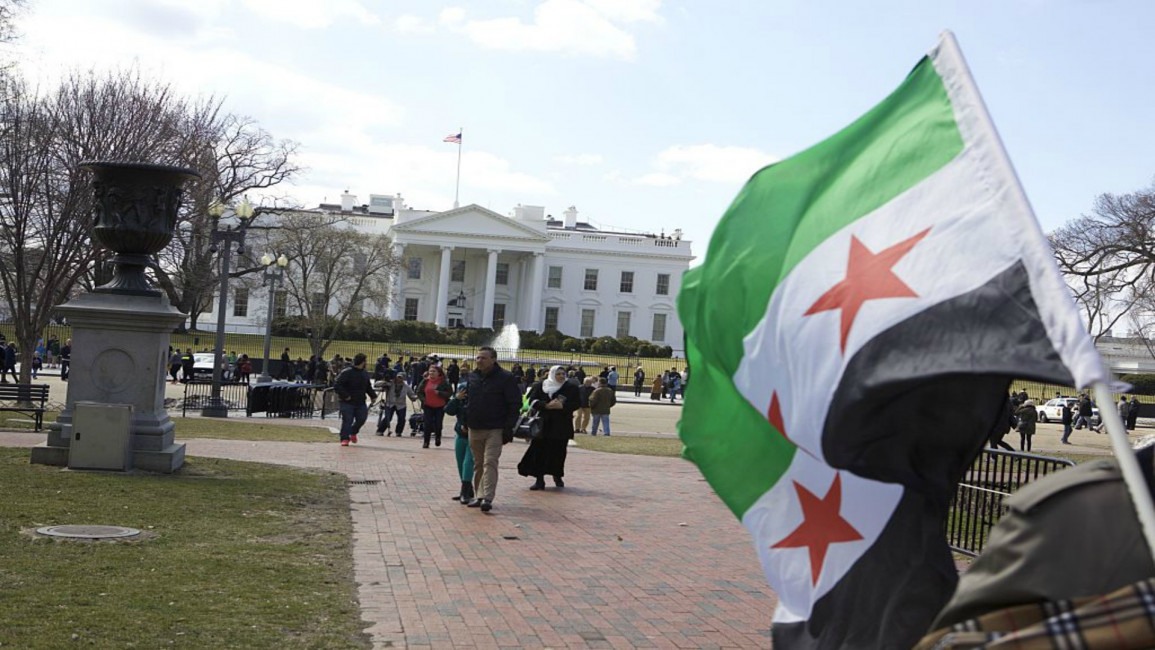
Syria's options and US foreign policy
The Syrian regime has transformed gradually into being a powerful militia state engaged in a desperate conflict with the Syrian people. Bashar al-Assad seeks to drain Syria of its financial and human resources, and, more critically, destroy its social fabric by creating an odious sectarian and civil conflict.
The regime, or militia, has ignored all legal obligations of war and peace. The peaceful revolution was confronted with live rounds, which harvested the souls of the finest of Syria's youth, such as Ghyath Matar, Hamza al-Khatib and many, many others. In the eyes of the regime, no rules of war exist, and so hospitals, residential areas, mosques and churches have all been targeted. Security branch jails are overflowing with stories of people dying under torture.
Thus, we find the Syrian people struggling for the five past years not just to maintain their resistance, but, more importantly, their coherence against the regime's policy to break it.
Syria today is undergoing a transition. Large swathes of Syria are liberated and beyond the control of the government. Assad has turned from being the president of a country to the mayor of Damascus and some of its suburbs despite achieving some gains here and there following Russia's intervention in the war in 2015.
 |
Assad has turned from being the president of a country to the mayor of Damascus. |  |
He is unable to leave his palace without being shadowed by his militia men. Assad's loss of the border crossings with Turkey and Iraq means, in a political sense, that he has lost the ability to establish his rule over strategically important geographical areas. Though he certainly can shell and burn these places, he cannot regain control over them.
Nonetheless these liberated areas, at the same time, are mostly disconnected geographically and can be easily targeted from the air. This prevents these liberated territories from being "safe zones". The absence of a central authority makes it difficult and complicated to manage these areas, and the more Assad stays at his palace the more painful the transition becomes.
These ongoing actions by the Assad government have created a power vacuum which has been filled by al-Qaeda and the Islamic State group. These groups have received heavy Western media attention following their barbaric slaying of journalists from Europe, Japan and the US. IS committed many crimes against the Syrian people especially in the areas under their control in Raqqa, Deir ez-Zor and the Aleppo suburbs. They prevent women from going to school, have closed all public spaces, and do horrific things in the name of Islam, such as lashing and beheading people in public who refuse to follow their orders, such as Syrian activists.
This is the dilemma the Syrian people face right now. They are between the Assad government bombarding their homes every day and IS which control their lands and rule over them in the name of Sharia. The number of victims of the war now exceeds 400,000, according to the UN, and more than 9 million Syrians have been forced to flee their homes, many of them abroad.
 |
This is the dilemma the Syrian people face right now. They are between the Assad government bombarding their homes and IS. |  |
The United States should not allow this to continue. It has a responsibility and role to play in helping the Syrian people to end this nightmare and open up a democratic future to them. The last "dissent" memo from diplomats at the State Department highlighted widespread frustration over the inaction of the Obama administration towards Syria over the last five years. Of course, US air strikes in Syria were focused only on IS, and did not take into consideration the huge number of civilians killed by Assad's barrel bombs every day.
I don't expect the Obama administration will change its course in the last remaining months the president has in office, but I think this memo might make its way to the next administration and put a strategy to end the Assad government, which has provided IS with the opportunity to rise to power.
Dr.Radwan Ziadeh is a Senior Middle East Analyst at the Arab Center Washington DC. Twitter Handle: @radwanziadeh
Opinions expressed in this article remain those of the author and do not necessarily represent those of The New Arab, its editorial board or staff.



